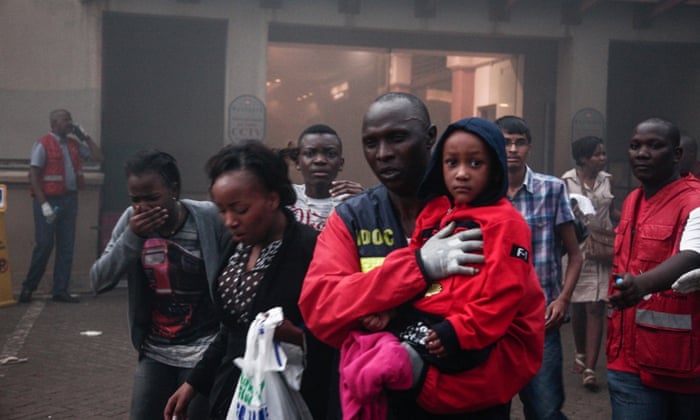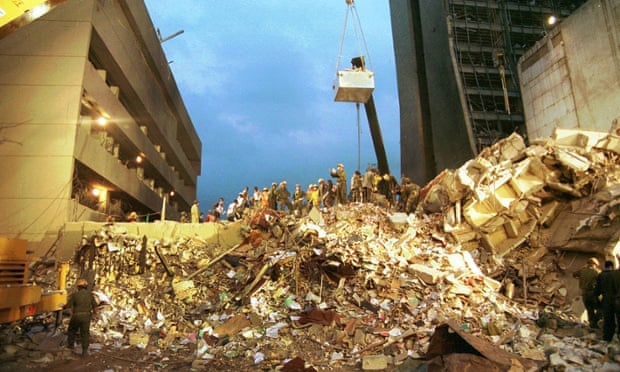After 12 years of scandal anti-corruption authorities in Kenya have finally brought charges against key people allegedly involved in what has become known as one of the country’s biggest corruption cases.
Facing court are former finance ministers, permanent secretaries, senior officials and businessmen, all of whom deny the charges – regarded as a breakthrough in the country’s fight against corruption which saw Kenya’s Ethics and Anti-Corruption Commission (EACC) and Swiss authorities working together for the first time.
The name at the centre of the scandal is Anglo Leasing Ltd, a little-known Liverpool-based company which became known to the Kenyan public at the start of 2004 when it was linked to 18 allegedly inflated state security contracts reported to be worth more than $700m, which were in some cases awarded to phantom entities.
The news was met with public outrage, but a legal case mounted in 2005 promptly fell apart due to a lack of evidence.
But as the scandal subsided, many of the tools the contracts were supposed to deliver – like a secure passport issuing system and a modern border-securing and security communication equipment, were not delivered. Instead, they were the subject of intense predatory interest by key figures in the Kenyan administration, for whom I worked at the time as permanent secretary in charge of governance and ethics, reporting to the president at the time, Mwai Kibaki.
When I first became suspicious of the contracts, I alerted the president. He approved an investigation by the then Anti-Corruption Police Unit. But it was soon apparent that I was the sucker, and that many senior public officials who were connected to the contracts knew that low scrutiny “national security” was the last refuge of the corrupt, and that these contracts provided an irresistible opportunity for self enrichment.
The war on terror
The security contracts were justified around a central premise – that the war on terror meant they were imperative. They formed the core of Kenya’s response to terrorism that had hit the country as early as 1998, when Al-Qaeda bombed US embassies in twin attacks on Nairobi and Dar es Salaam.
But, in many cases they were delivered at inflated costs, were of substandard quality, or in some cases delivered nothing at all. But ,when the government failed to pay they were promptly sued.
Many of these agreements had been initiated under the previous government of Daniel arap Moi, who came to power in 1979, and under his successor Kibaki they continued seamlessly. When Uhuru Kenyatta was elected in March 2013 payments to controversial entities even continued, causing considerable public criticism.
Ironically, it is these contracts that were in Kenyan parlance “eaten” by the elite, that opened the door to al-Shabaab, the Somali terrorist group which now poses a significant threat to the Kenyan state.
The door was opened because the kit that was supposed to safeguard the Kenyan borders, to ensure national security, simply wasn’t in place to interdict terrorists. “Eaten” were the contracts for a robust immigration control system, or for basic police communication equipment.
Meanwhile the west has pumped hundreds of millions of dollars into the fight against terror in Kenya. But much as they did in Pakistan, they have ignored other worrying issues so long as the state in question was pliant and cooperative vis-à-vis their particular “bad guys”.
Skepticism
Experiences in countries such as Nigeria, Pakistan, Afghanistan, Iraq and Kenya demonstrate that corruption feeds and sustains insecurity.
This was especially clear after Kenya invaded Somalia in late 2011 to bolster efforts in the war against al-Shabaab. The response was furious, leading to more than 100 attacks the following year in Kenya, all claimed al-Shabaab, resulting in the deaths of hundreds of people.
This includes the Westgate Mall attack in September 2013 that demonstrated just how weak the security establishment had become, when Kenyan soldiers proceeded to loot the mall after a bungled stand-off with terrorists lasting four days.
Worse still, despite taking control of the port of Kismayo – a key site in the Somali charcoal trade which largely funds al-Shabaab – the Kenya Defence Force (KDF) have failed to curb the industry. Some experts argue that al-Shabaab is now making more money than ever did before.
All this has shocked Kenya’s middle class that had long viewed the military as one of the more professional institutions in the country, where others have been hollowed out by corruption and tribalism.
As such, the Anglo Leasing prosecutions have been greeted with unsurprising skepticism. This is, in part, because they are totally without precedent, in a country where elite impunity is the norm. Just a week after the supposed key players were indicted, the chair of the Ethics and Anti-Corruption Commission suspended the lead investigator – only for this decision to be rescinded by the head of the anti-corruption body just 24 hours later.
This debacle was viewed by some as just another episode in a state contrived pantomime, for the benefit of a wearied public already numbed by the sheer number of scandals that have emerged from the current government.

A smart move?
Despite the sham, these prosecutions are also a smart political move: a public relations exercise and an attempt to launder reputations while bringing to a close one of the most ignominious corruption scandals in Kenyan history – by kicking it into the long grass of the Kenyan judiciary.
But what remains of great concern is the deliberate hollowing out of the security establishment for private profit, at a time when Kenya faces its most determined and focused foe in al-Shabaab. For many in the elite profit trumps security, and for some in the international community security trumps democracy and accountability: both will lose out.
In contexts like Kenya’s where corruption is so systemic that entire public institutions are essentially privatised there’s great need for more robust international mechanisms to deal with corruption. To deal with situations where the system isn’t corrupt but corruption is literally the system.
An international anti-corruption court enjoying the same kind of powers held by weapons inspectors would go a long way. Otherwise we remain in a situation where the dirtiest money flows through the arteries of the global financial sector, and the price of this is the lives of innocent people in Kenya, Nigeria, Niger and other unfortunate parts of the world where the threat of terrorism is very real and present.

